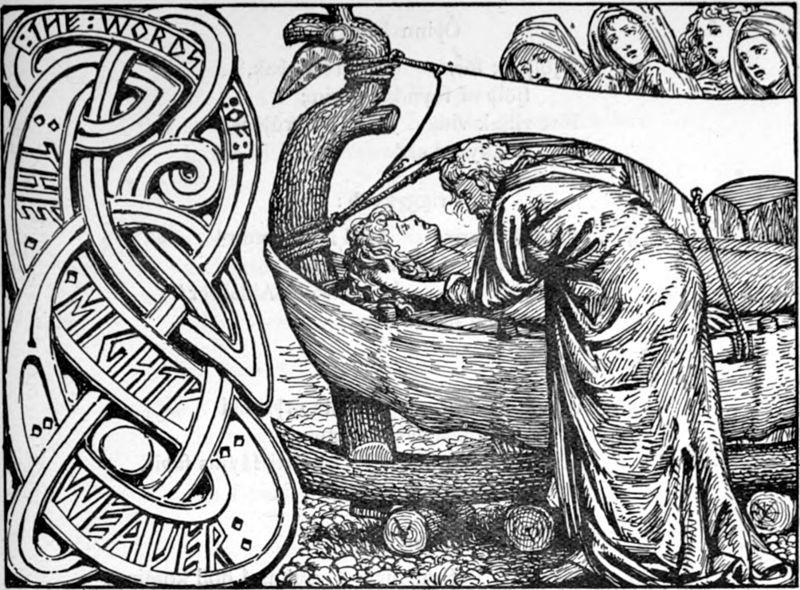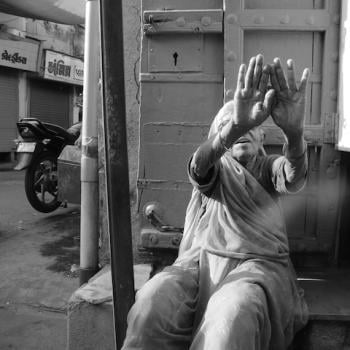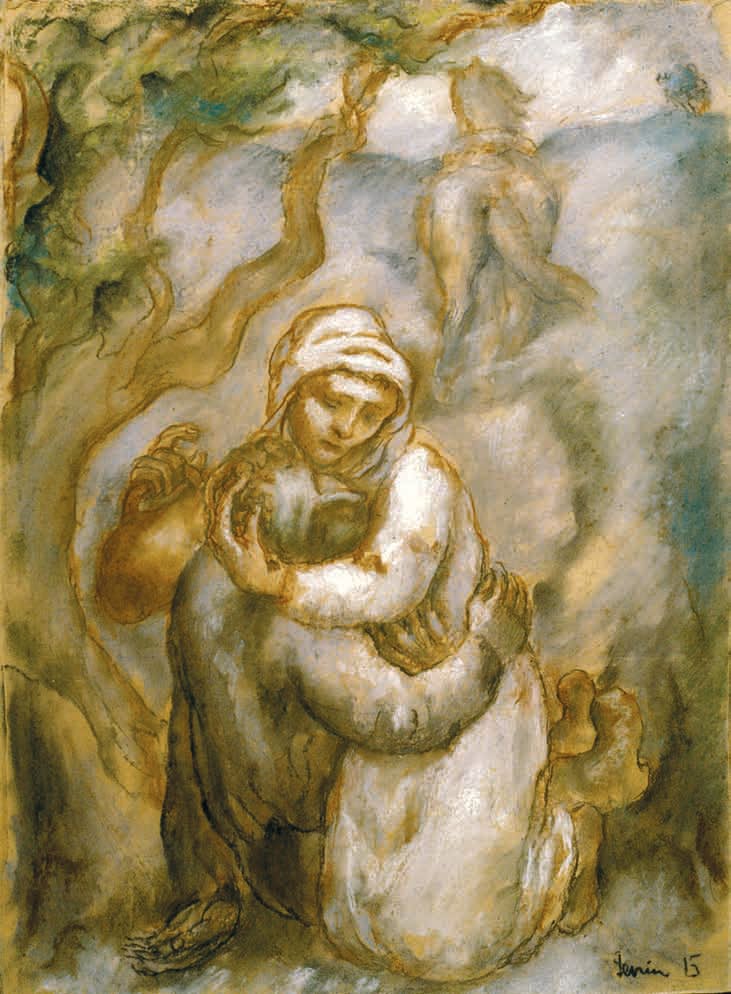
Today’s post is a sermon I gave Sunday at Trinity Episcopal in Iowa City. Regular readers will recognize some familiar themes from previous Holy Rover posts. If you’re interested in the Honoring Your Wishes program but don’t live in Iowa City, you can find similar programs in many other places. In the U.S., see Caring Connections, which is part of the National Hospice and Palliative Care Organization. A growing number of other countries have similar programs.
My friend Teri, who came from a large Catholic family in Dubuque, used to tell a story about the death of one of her aunts. As the woman neared the end of her life, her daughter called Teri to ask if she wanted to be part of the group that was gathering at her mother’s bedside.
Teri asked how many people were there. There was a pause as her cousin did some counting, and then she replied, “Oh, there are about 65 of us here.”
Teri decided that her aunt probably had enough loved ones to see her off.
Now that’s quite an image, isn’t it, of all those relatives at a bedside? I hope Teri’s aunt was a people person.
I’ve thought of this story a number of times in relation to Trinity’s new Honoring Your Wishes program, which is part of a national effort to make the American way of death more humane and gentle. The death experienced by Teri’s aunt (while perhaps a bit overpopulated with relatives) is increasingly rare in our country. Most people will instead die in hospitals, separated from those they love, often after undergoing medical procedures that have been done not to provide them comfort or cure but rather because loved ones didn’t know their advance wishes and doctors want to protect themselves from potential liability.
 Physician and author Atul Gawande does a brilliant job of dissecting the problems with this system in his new book Being Mortal: Medicine and What Matters in the End
Physician and author Atul Gawande does a brilliant job of dissecting the problems with this system in his new book Being Mortal: Medicine and What Matters in the End. In it he says that surveys have found that most people’s priorities for end-of-life care are much broader than simply prolonging their lives. Their top concerns include avoiding suffering, strengthening relationships with family and friends, being mentally aware, not being a burden on others, and achieving a sense that their life is complete. Writes Gawande: “Our system of technological medical care has utterly failed to meet these needs, and the cost of this failure is measured in far more than dollars. The question therefore is not how we can afford this system’s expense. It is how we can build a … system that will actually help people achieve what’s most important to them at the end of their lives.”
The Honoring Your Wishes program is part of building that new system. LaCrosse, Wisconsin, shows what can happen when it is widely adopted. Nationally, about 30 percent of adults have an advanced health care directive detailing their end-of-life wishes. In LaCrosse, about 95 percent do. It has simply become the norm to talk about end-of-life matters in LaCrosse. As a result, LaCrosse has the lowest per capita health expenditures in the last year of life of any city in the U.S. More importantly, its citizens have been spared an immense amount of grief and heartache. Because of these discussions, people tend to have better deaths, with fewer hospitalizations, better quality of life, and less stress on families.
Here at Trinity, we have three members who have gone through Honoring Your Wishes training. We hope everyone in the parish will make an appointment for an Honoring Your Wishes session. While you may already have had discussions with a lawyer covering legal matters, this conversation is more holistic in scope. It generally is done in two parts. You’ll be asked to think about what your wishes are for your final stage of life. You’ll designate two health care agents who will make decisions for you if you are not able to make your wishes known. The result is not a check list of procedures—ventilator “no,” feeding tube “yes”—but rather a narrative that will guide those who love you. You may think this is something that only the elderly need to be concerned with, but in many ways it is best to think of these matters well before you are likely to confront them. And sometimes tragedies occur, of course, even to the young and healthy.
I know Bob and I found our Honoring Your Wishes conversation to be very thought-provoking. We consider it to be a gift to our children to have our end-of-life wishes be explicit, detailed, and known to them. The conversation has also helped trigger a deeper reflection on what makes life meaningful to us. This is one of the things that makes the Honoring Your Wishes program different from visiting with your lawyer. Health care decisions are important, of course, but confronting our mortality raises existential and spiritual questions of far greater importance. In the words of Buddhist teacher Kathleen Singh, thinking about our deaths can be like jet fuel for our spiritual practice. It’s why medieval monks kept skulls on their desks and Buddhists meditate in graveyards.
 Singh writes about the power of this path in her book The Grace in Aging
Singh writes about the power of this path in her book The Grace in Aging. She explores the ways in which growing older can help awaken and deepen our connection to spirit. Many of these opportunities, frankly, we likely see as negatives. If we’ve relied on beauty or power for status in the world, inevitably they will fade as we age. If we lacked the time for spiritual practice when younger, illness or disability may give it back to us. If much of our life has been spent feeding the ever-hungry ego, growing older gives us the chance to look at what we’ve mistakenly nurtured with such care.
Singh uses a memorable image to illustrate how many of us live. When we feel threatened or insecure, we respond like jack-in-the-box toys. Our thoughts and habits are like that clown that keeps bouncing up from his box. We each have our clown of choice: perhaps anger, self-pity, a need for approval, a seeking after control, a desperate clinging, or jealousy. These are our habitual escape routes, well-traveled paths that condition our responses to whatever we confront.
Since reading Singh’s book, I’ve been thinking a lot about my own jack-in-the-box. Singh doesn’t present a magic formula for keeping that clown from re-emerging when I least expect him, but I think I am a little less automatic in letting him loose. And if you think you don’t have one of those jack-in-the-box clowns-—well, you’re welcome to have mine. I’m getting awfully tired of him.
The paths to spiritual growth as we grow older are many. Silence. Solitude. Forgiveness. Humility. Mindfulness. An opening of the heart. Seeing this process unfold is one of the reasons why it can be so transformative to be around those who are dying. Perhaps you have been privileged to see this happen. Old hurts get forgiven. Memories are cherished. The best in people emerges, as if dying is a fire that burns away all their impurities.
I remember visiting my great aunt when she was well over 100. There was not much left of her other than love. I was a bit startled when she told me how much she loved me, in fact, because we hadn’t been particularly close. But I think she deeply loved me then, just as she radiated love for the nurses who took care of her and for the housekeeping staff and for anyone who happened to wander into her room by accident. That’s a pretty good way to end your life, loving everybody who comes through your door.
The Bible certainly gives us plenty of messages about our mortality. Think of all those passages in the Psalms about flesh being like the grass. Or recall that powerful moment in every burial service when the priest faces the bodily remains of the person who has died and says, “You are dust, and to dust you shall return.” That same phrase, of course, we will soon hear on Ash Wednesday. As Christians we believe that the grave is not our final end, but I think our faith also invites us to wrestle with the spiritual challenges of confronting the inevitability of our deaths.

A couple of years ago I had the chance to hear the Franciscan priest and author Richard Rohr give a speech. At the end he answered questions, including one from a speaker who identified himself as a Hospice employee. The man asked Rohr why he thought so many people struggled spiritually as they approached the end of their lives. Rohr answered with this: “You don’t want to leave your homework,” he said, “until the night before the test.”
So here at Trinity, you might think of the Honoring Your Wishes program as a kind of homework. If you want extra credit, you can read Gawande’s book Being Mortal and Singh’s book on Grace in Aging.
Or here’s something you can do right now, a little exercise that I hope will help you realize why these matters are important. I invite you to close your eyes and take a deep breath, and then another. And I hope you will remember that these breaths are not infinite. One day they will cease. They are a slender thread that ties us to life.
One breath.
Then another.
Each one a gift.














